
Integrated health system specialty pharmacies can improve patient care for non–multiple sclerosis neurologic conditions.

Integrated health system specialty pharmacies can improve patient care for non–multiple sclerosis neurologic conditions.

Logan Schneider, MD, highlights the importance of integrating patient-reported outcomes into clinical trials to better capture the full therapeutic impact of low-sodium oxybate (Xywav) beyond traditional sleep metrics.

Paula E. Voinescu, PhD, MD, emphasized the need for additional research in this area, noting it is both “surprising and upsetting.”

Logan Schneider, MD, explains the latest findings on narcolepsy and idiopathic hypersomnia treatments, highlighting patient experiences and sleep architecture improvements.
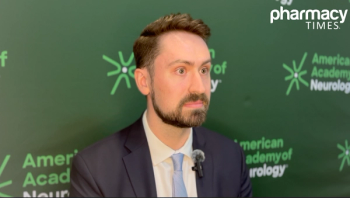
Philip Kuball, MD, neurology resident at NYU Langone Health, highlights the integral role of pharmacists in monitoring patient eligibility, managing dosing schedules, and ensuring safe medication interactions for lecanemab treatment in Alzheimer disease.

Lauren B. Krupp, MD, FAAN, provides comprehensive guidance on treating pediatric multiple sclerosis, emphasizing early intervention, high-efficacy therapies, and holistic family support.

Nipocalimab with standard of care helped patients with generalized myasthenia gravis (gMG) maintain improvements in daily living and quantitative scores compared with placebo.

The future holds the promise of earlier diagnosis, more targeted therapies, and personalized neurological care, said speaker William D. Freeman, MD, FAAN.

Huntington disease (HD) has no curative treatments, therefore, there is a great need for therapies that can reduce or slow the progression of symptoms.

Nilufer Ertekin-Taner contrasts current one-size-fits-all Alzheimer disease treatments with the promise of precision medicine and emphasizes the vital role of collaborative, multidisciplinary care.
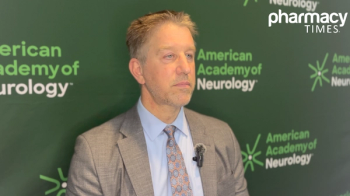
The HERCULES trial demonstrates tolebrutinib's potential to slow disability progression in non-relapsing secondary progressive multiple sclerosis, offering a new treatment option for patients with limited therapeutic choices.

Numerical differences were observed as early as Month 1.

Advanced practice provider (APP) care models allow for health systems to better individualize care for patients, effectively meeting their needs.
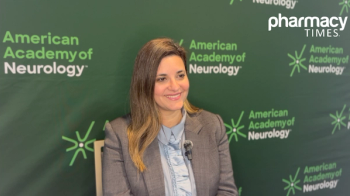
Kara Melmed, MD, emphasizes the critical importance of rapid, team-based intervention for intracerebral hemorrhage (ICH) patients, with pharmacists playing a key role in blood pressure management.
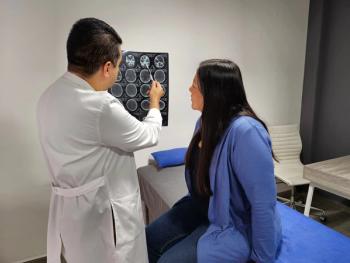
Kayla Johnson, PharmD, BCPS, BCPP, highlights how integrating pharmacists into neurology clinics drives significant cost savings, high intervention acceptance rates, and improved care coordination.

Stephanie Miller, PhD discusses how artificial intelligence can revolutionize medical research by assisting in drug development and potentially providing more targeted treatments across various diseases.
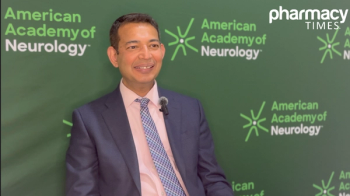
Glucagon-like peptide-1 (GLP-1) analogs demonstrate potential to address multiple pathological processes in Alzheimer disease, with promising early research suggesting cognitive improvements and potential for future treatment.

Andrew Charles, MD, outlines why calcitonin-gene-related peptide (CGRP) antagonists are increasingly favored as first-line migraine treatments and how pharmacists play a key role in patient education and support.

A study led by Kayla Johnson, PharmD, BCPS, BCPP found that integrating specialty pharmacists into non-multiple sclerosis (MS) neurology clinics led to significantly enhanced patient care and treatment outcomes.

Beth A. Malow, MD, MS, FAAN, said that pharmacists and health care professionals are at the frontlines of collaborating and raising awareness of climate change’s impacts.

Malow also emphasized the importance of staying educated on the potential neurological risks that may occur as a result of climate change.
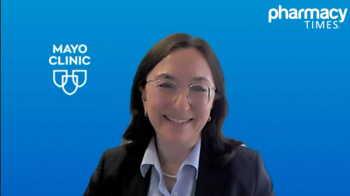
Nilufer Ertekin-Taner outlines how embracing the biological complexity of neurodegenerative diseases can guide the development of precision therapies akin to those used in oncology.

According to the speaker, the complexity of immune-related adverse events resulting from immune checkpoint inhibitors requires a lot of collaborative discussion between patients and providers.

Speakers in a presentation discuss a specific patient with MS who experienced urinary complications and the methods used to treat her.

The AAN speaker highlights what health care providers need to know when treating migraines in populations on hormone therapy, as well as how hormones can influence migraines.

With migraine as a leading disability for those under the age of 50, treatment options for migraine should be personalized to the patient and their needs.

Frexalimab demonstrated a favorable tolerability profile after approximately 1 year of treatment for individuals with relapsing disease.

Ofatumumab (Kesimpta; Novartis) demonstrated a sustained efficacy as a first-line, continuous treatment for patients recently diagnosed and treatment-naïve with relapsing multiple sclerosis.

Speaker Monica Diaz describes the detrimental impact climate change has on the transmission and increases in infectious disease cases.

The extension trial of atogepant demonstrated an 8.5-day improvement of monthly migraine days at weeks 13 through 16 and no new safety signals were observed.